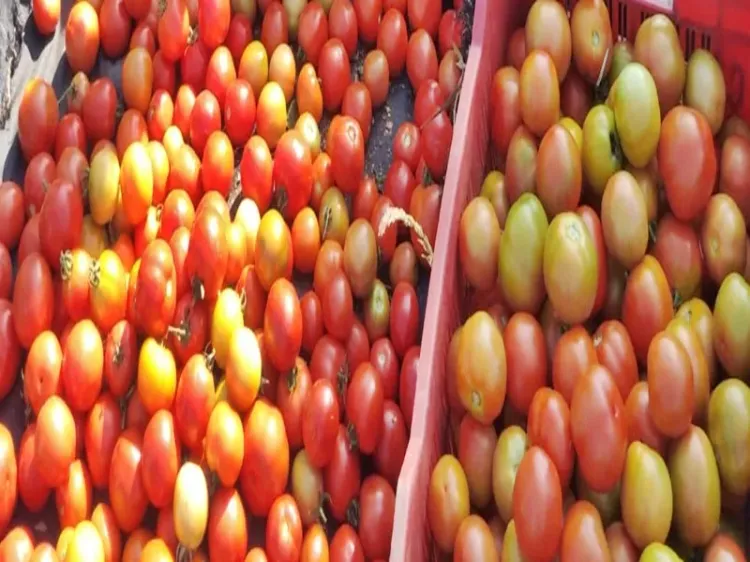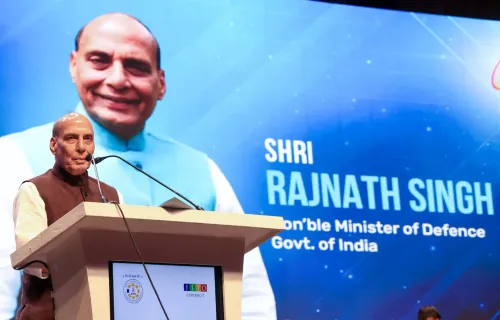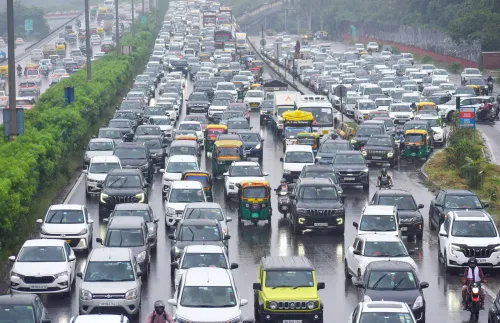Why Are Andhra Farmers Dumping Tomatoes on the Streets?

Synopsis
Key Takeaways
- Farmers in Kurnool are facing severe financial distress due to plunging tomato prices.
- Protests have led to significant traffic disruptions.
- Demands for government intervention are growing.
- Future plans include establishing a tomato processing unit.
- The situation highlights the need for sustainable agricultural practices.
Amaravati, Oct 5 (NationPress) As the price of tomatoes continues to plunge dramatically, farmers in Kurnool district of Andhra Pradesh are resorting to dumping their harvest onto the roads.
The price at the Pathikonda wholesale market has fallen to a mere one rupee per kilogram, causing significant distress for local farmers.
In a bold act of protest, these farmers dumped their tomatoes on the streets, resulting in a traffic jam on the Gooty-Mantralayam Road.
They are urging the government for assistance, calling for the implementation of fair pricing structures. Additionally, they are demanding the establishment of a tomato processing plant in their area to provide them with better support.
Andhra Pradesh is renowned for its tomato yield, achieving an impressive 41.22 tonnes per hectare across 62,000 hectares. The district alone has an estimated tomato yield of 22.17 lakh tonnes, with around 4,800 hectares dedicated to cultivation in Kurnool, yielding about 1,67,591 tonnes annually.
Tomatoes in this region are harvested in two main seasons: from August to October (Kharif) and from December to April (Rabi).
Pathikonda stands as the second-largest tomato market in the state, following Madanapalli in Chittoor district.
Faced with fluctuating prices that lead to financial losses, the state government has pledged to establish a tomato processing unit.
An official directive was issued earlier this year, allocating Rs 11 crore for this processing facility on a 2.5-acre site in Dudekonda.
During the election campaign last year, Chief Minister N. Chandrababu Naidu assured the local population of this initiative.
Recently, YSR Congress Party (YSRCP) leader Y.S. Jagan Mohan Reddy criticized the TDP-led NDA government for neglecting farmers, citing the drastic decrease in onion and tomato prices.
Reddy pointed out that the price of onions in Kurnool is currently Rs 3 per kg, while tomatoes are priced at an astonishingly low Rs 1.50 per kg. “How can farmers survive on these prices?” he questioned.
He highlighted that farmers were forced to discard their harvest due to a lack of buyers and called for urgent governmental action.









